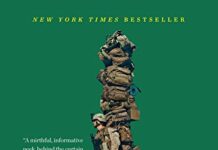
Ebook Info
- Published: 2016
- Number of pages: 192 pages
- Format: Epub
- File Size: 0.66 MB
- Authors: Sebastian Junger
Description
Decades before the American Revolution, Benjamin Franklin lamented that English settlers were constantly fleeing over to the Indians-but Indians almost never did the same. Tribal society has been exerting an almost gravitational pull on Westerners for hundreds of years, and the reason lies deep in our evolutionary past as a communal species. The most recent example of that attraction is combat veterans who come home to find themselves missing the incredibly intimate bonds of platoon life. The loss of closeness that comes at the end of deployment may explain the high rates of post-traumatic stress disorder suffered by military veterans today.
Combining history, psychology, and anthropology, Tribe explores what we can learn from tribal societies about loyalty, belonging, and the eternal human quest for meaning. It explains the irony that-for many veterans as well as civilians-war feels better than peace, adversity can turn out to be a blessing, and disasters are sometimes remembered more fondly than weddings or tropical vacations. Tribe explains why we are stronger when we come together, and how that can be achieved even in today’s divided world.
User’s Reviews
Review “Junger has raised one of the most provocative ideas of this campaign season–and accidentally written one of its most intriguing political books.”―The New York Times”There are three excellent reasons to read Sebastian Junger’s new book: the clarity of his thought, the elegance of his prose, and the provocativeness of his chosen subject. Within a compact space, the sheer range of his inquiry is astounding.”―S. C. Gwynne, New York Times bestselling author of Rebel Yell and Empire of the Summer Moon”Sebastian Junger has turned the multifaceted problem of returning veterans on its head. It’s not so much about what’s wrong with the veterans, but what’s wrong with us. If we made the changes suggested in TRIBE, not only our returning veterans, but all of us, would be happier and healthier. Please read this book.”―Karl Marlantes, New York Times bestselling author of Matterhorn and What It Is Like to Go to War”Junger uses every word in this slim volume to make a passionate, compelling case for a more egalitarian society.”―Booklist”The author resists the temptation to glorify war as the solution to a nation’s mental ills and warns against the tendency “to romanticize Indian life,” but he does succeed in showing “the complicated blessings of ‘civilization,’ ” while issuing warnings about divisiveness and selfishness that should resonate in an election year. The themes implicit in the author’s bestsellers are explicit in this slim yet illuminating volume.”―Kirkus Reviews”Thought-provoking…a gem.”―The Washington Post”TRIBE is an important wake-up call. Let’s hope we don’t sleep through the alarm.”―Minneapolis Star Tribune”Compelling…Junger…offers a starting point for mending some of the toxic divisiveness rampant in our current political and cultural climate.”―The Boston Globe”Junger argues with candor and grace for the everlasting remedies of community and connectedness.”―O Magazine”TRIBE is a fascinating, eloquent and thought-provoking book..packed with ideas…It could help us to think more deeply about how to help men and women battered by war to find a new purpose in peace.”―The Times of London”This is a brilliant little book driven by a powerful idea and series of reflections by the bestselling author of the bestselling books The Perfect Storm and War, and the film documentary Restrepo, about fighting in Afghanistan…The strongest experience of companionship and community often comes with the extremes of war. Junger is particularly good on the stress and exhilaration experienced by reporters, aid workers, and soldiers in combat – and the difficulties they face on return…I would give this gem of an essay to anyone embarking on the understanding of human society and governance.”―Evening Standard “An electrifying tapestry of history, anthropology, psychology and memoir that punctures the stereotype of the veteran as a war-damaged victim in need of salvation. Rather than asking how we can save our returning servicemen and women, Junger challenges us to take a hard look in the mirror and ask whether we can save ourselves.”―The Guardian “Junger has identified one of the last cohesive tribes in America and, through an examination of its culture of self-subjugation grasps for a remedy that might reunite a fragmented civilian society.”―Elliot Ackerman, Times Literary SupplementTRIBE is an extended reflection on the need for inclusion and belonging…written by an impassioned war correspondent less concerned with the scars of battle than the psychological dislocation experienced by those returning home, who have experienced tribal inclusion, but now face a future without it.―Pittsburgh Post-GazetteTRIBE is a fascinating look into why inspires ancient human virtues of honor, courage and commitment on the battlefield, and the difficulty that can arise when a combat tour is over. While the book may easily fit in a soldier’s small cargo pocket, it packs immensely valuable insight that is sure to bring understanding to military and civilian readers alike.―San Antonio Express-NewsI first read about this history several months ago in Sebastian Junger’s excellent book, TRIBE. It has haunted me since. It raises the possibility that our culture is built on some fundamental error about what makes people happy and fulfilled.―David Brooks, The New York Times
Reviews from Amazon users, collected at the time the book is getting published on UniedVRG. It can be related to shiping or paper quality instead of the book content:
⭐ I have long wondered why when it was time for me to return to America from Vietnam I was apprehensive, perhaps even a bit frightened. Mr. Junger answered my question. I left my tribe.Now, years later, a libertarian-conservative, I had even allowed myself to hold the political left in contempt. This book shames me and I suspect that in that regard the book will even affect change in me.I’m supposed to be writing about this book, not myself, but for me the book was not just interesting and informative. It opened up something long suppressed and I am grateful.If you are a vet you should read it. If you are so highly partisan that you regard those other guys as evil, please read it.It’s not just a good book.
⭐ Upon reading Junger’s article in a recent Vanity Fair article on the affects of PTSD (it’s not exclusive to just war veterans, by the way), I was under the assumption that a large portion of this book would be dedicated to that. I was wrong. Sebastian dove much deeper than that.Tribe focuses on the growing disconnect we’re experiencing with one another as a society, and the far reaching consequences of that disconnect. It’s an eye-opening letter to the American public that politely reminds us that we’ve lost our way when it comes to being a closer knit community as a whole.Not always, of course. In his book, he touches on how tragedies such as 9/11 brings us closer – albeit briefly. But once the dust settles, we fall back to our old ways.This is not a book about war, the military, or PTSD. It’s about the loss of belonging, caring for our fellow man as we do about the ones closest to us. He uses a parable about a brief encounter he has with a homeless man as a young adult. The man sees that he’s on a backpacking trip on his own and asks if he has enough food for his trip. The young Junger, afraid of being mugged for his supplies, lies and tells the man that he has just a little food to last him. The homeless man tells Junger he’ll never make it on what he has and hands him his lunch bag that he more than likely received from a homeless shelter – probably the only meal the homeless man would have the entire day. Sebastian feels horrible about himself after that, but uses that lesson as a parable for Tribe.Think of your fellow man before thinking of yourself. Because without that sense of humanism, togetherness, belonging, we’re all dead inside.
⭐ Several years ago during the height of our wars in Iraq and Afghanistan, I had a “discussion” with my brother. He said he was willing to pay his taxes to support the wars, this being the extent of his commitment.He has three sons, all eligible to serve in the military, none of them having done so, and neither had he.Many years hence, following North Korea’s hack of Sony, my same brother implied we should go to war against Korea and not bother with Obama’sproportional approach. I reminded him we have 25-30,000 troops along the border there, and he seemed to not care.Then I asked him if he was going to encourage any of his boys to enlist and take up arms. He emphatically told me there were plenty of people willing to go fight. That, of course, didn’t answer my question, but he knew he slipped it and I simply stopped speaking to him.What my brother was willing to do was finance the fighting. He had no intention of paying the true costs of what he advocated.Mr. Junger’s book explains why this type of attitude is so harmful to those who fight our wars and return home to a population so far removed from the wars and the troops that it affects their assimilation into the society they left, and causes us to treat them as victims instead of soldiers, and why it’s never enough or even wise to simply say: “thank you for your service”.Because we limit our war exposure to so small a percentage of our citizens, men and women return home to a country completely removed from any type of knowledge of the brotherhood of soldiers, the cohesive units that draw men and women close and unites them. And it isn’t just the soldiers exposed to battle that feel the effects and suffer from high rates of PTSD for longer periods because they reenter a country suddenly foreign to them. Civilians go through the same ordeal. And it occurs in America at far higher rates than other countries involved in war.I thought this was a great read. I highly recommend it. I’m glad it made the NYT bestseller’s list. Maybe people will start paying attention.Sebastian has the bona fides to cover a topic such as this. We’d be wise to listen to what he has to say.
⭐ Junger is attempting to make a point that humanity needs war or natural disasters to feel a sense of community or purpose. To make this point, he disparages the remarkable civilization of the American Indians by continually referring to their existence as “stoneage” and “war-like”. Those people lived on their lands for thousands of years coexisting and warring only on occasion. He opens by taking food from a homeless man and hoarding his own. Then argues that he made the man feel good. I spent most of the time reading this book feeling downright icky. I and my fellow book club readers all felt the same after reading this self-centered, ego driven, uninformed, loosely documented attempt at a point.
⭐ “Isn’t it fun to be with your tribe?” author Joyce Carol Oates asked the assembled 1,000+ who had gathered to hear her speak at the 2016 National Book Festival in Washington, D.C. Indeed. As an avid reader, I had never before thought of those sitting around me in this auditorium as “my tribe,” but the description fit. Suddenly, I felt more fulfilled and happy. My tribe!As humans, we are programmed to be part of groups, or tribes, for survival. Modern society is the antithesis of tribal unity. We live lives that are separate from one another. And that is why so many of us are sad, anxious or even clinically depressed. This extraordinary book by Sebastian Junger—which will only take you a few hours to read–explains in an eye-opening way the incredible value of tribal behavior and the resulting danger when it disintegrates.When we think of tribes, most of us think of American Indians, and that is an excellent example of a group of people each taking care of the entire group’s needs—from food to fighting. In today’s world, tribes only form in times of distress: soldiers on the battlefield, civilians in Sarajevo who were under siege for years during the Bosnian war, Britons during the Blitz and survivors of natural disasters. We Americans became a tribe after the terrorist attacks of September 11, 2001, and that feeling of unity lasted for about two years. Mind you, no one is advocating war and violence, but it is only then that we revert to tribal behavior for survival. The divisive, contemptuous language that characterizes the United States today—liberals vs. conservatives—is dangerously undermining, seriously weakening and distressingly dividing our American tribe.Here is the takeaway from Junger’s thesis: It is only through tribal behavior that we humans feel a true sense of loyalty and belonging, and this could very well be the key to our mental health and wellbeing.I give this book my strongest recommendation, and while I encourage everyone to read it and talk about it, I think it should be required reading for all U.S. elected officials. It is a truly remarkable book.
⭐ Sebastian Junger has written an important and thoughtful social commentary on the soul-killing challenges of modern life. Junger, a journalist best known for his mega-bestseller, The Perfect Storm, and for co-directing the award winning documentary about the Afghan War, Restrepo, wrote Tribes based on an epiphany he experienced trying to reconcile two seemingly unrelated existential ideas. Years ago he heard an unusual tidbit of early American history that stuck in his mind: white captives of native Americans rarely desired to return to civilization once they experienced native tribal life. The idea fascinated him. Later, after years of experience as a war correspondent and countless hours with military veterans both in and out of combat, he began to consider the problem of PTSD and the strange desire of combat veterans to return to the war zone as soon as possible after coming home. He began to wonder if the two ideas were related. Tribe: On Homecoming and Belonging, is the result of his investigation into that possibility. It is also somewhat of a personal mental exercise Junger needed to come to grips with his own feelings of social isolation and PTSD after his travels to and from combat zones. His conclusion that shared hardships and a sense of purpose draw people together into “tribal” relationships that are good for the human spirit is not entirely revelatory. Military leaders, corporations and even organized criminals have used that idea to develop loyalties, personal bonds and team building drills. But his other conclusion and the one that got my attention was about PTSD — that PTSD isn’t merely a psychological reaction to trauma. In fact, in some cases, PTSD has nothing to do with trauma. Instead, Junger believes that some of the worst symptoms of PTSD such as extended depression may actually be caused by the disconnect between modern life and the “tribal” environment of a combat deployment. As a Veteran who has worked with returning combat Veterans both in the VA and at my church, I heartily agree with this conclusion (in fact, I became interested in reading Tribe because of an interview in which Junger laid out this idea. It’s one I have long held myself.). Junger makes a strong case that the hyper-individualism and comforts of modern society are bad for the human spirit, increase human isolation, and are the cause of much of the suicidal depression that plagues humanity –especially returning Veterans. Its quick albeit a bit jumbled of a read. Junger is a brilliant writer so his prose is stellar and never boring. His anecdotal style helps — this isn’t a boring textbook analysis, it’s Junger trying to work out his thinking on this. And it’s really an extended essay (portions were published previously in Vanity Fair) broken into several chapters with slightly different focuses. The book’s biggest weakness is Junger’s occasional preachiness about the divisions in modern American society. Junger seems to think our social divisiveness — like the political divide between left and right — needs to be overlooked for the good of the whole as “both sides are basically correct.” This is relative morality on his part. He later goes on to suggest that the brokers who caused the real estate meltdown are as much traitors to America as Bowe Bergdahl, the notorious Army deserter. His attempt to sound morally objective in his judgments comes across as self-righteous. But Junger can be forgiven for all this because Tribe is an important contribution to a much needed national discussion on PTSD, national service and the returning Veteran. Recommended.
⭐ In Louis Dumont’s “Essays on Individualism” he compares those days gone by when neighbors gathered to rebuild the barn destroyed by calamity, with modernity, when insurance premiums are paid to strangers who contract strangers to rebuild the barn for a stranger. Likewise, Junger opens his book with a lamentation, “I’d grown up… where people’s homes were set behind deep hedges… and neighbors hardly knew each other. And they didn’t need to. Nothing happened that required a collective effort. Anything bad that happened was taken care of by police… fire department… or town maintenance crew.”Junger’s book is about why for many, he writes, “war feels better than peace, and hardship can turn out to be a great blessing… Humans don’t mind hardship, in fact they thrive on it; what they mind is not feeling necessary. Modern society has perfected the art of making people not feel necessary.” Thus echoing Chantal Delsol in her “Icarus Fallen”: “Hardship makes a people. So does its absence.”As Junger tells it, this started early. Benjamin Franklin puzzled over it, as did a Frenchmen in 1782 when he noted, “Thousands of Europeans are Indians, and we have no examples of even one of those Aborigines having from choice become European. There must be in their social bond something singularly captivating and far superior to anything to be boasted of among us.” Yet, Steven Pinker would be pleased that Junger makes clear the fictions of a Nobel Savage are not the reason. Instead, while modernity advertises individualism in the latitude of every “free choice” it can invent, modernity is hostile to freedom. Modernity, Junger writes, “created exactly the opposite of [surplus leisure time]: a desperate cycle of work, financial obligation, and more work.”Junger claims the agricultural revolution, followed by Industrial Age (and now Information age), violated the kind of creature humans evolved to be. Rather than socially dependent creatures with feelings for our tribe, modernity made us asocial, isolated creatures often with hostility for others in a new imitation of tribe based on political ideology. While our political Right vilifies nonworking freeloaders, the Left promotes care for the needy. But according to Junger both coexisted in hominid social structure as part of a unified whole for hundreds of thousands of years. The former evolved from the reality of scarce resources with the threat to tribal survival a freeloader presents. The later evolved from a tribal mentality that values every member as a healthy defender of the tribe. Of America’s petty ideologies, this Afghanistan and Iraq war correspondent notes, “Reviling people you share a combat outpost with is an incredibly stupid thing to do, and public figures who imagine their nation isn’t, potentially, one huge combat outpost are deluding themselves.” The social system we built is based on abnormal psychology, and yet we assume its normal through habit. The stress we feel and daily tensions we experience say otherwise. Could there be another species so odd?Good book. Short. 3.5 stars, rounded up.
⭐ This was recommended to me by a brother-in-arms during a discussion about the transition from combat to civilian life and the challenges and obstacles it presents. It was not at all what I had expected. Junger’s WAR did a solid job of showing the depth of commitment between soldiers in combat, and I had anticipated more of the same here. While this is part of the book, Junger seeks to take a more holistic look at why, when things are grim, people do what they do: why do people sacrifice and behave altruistically in times of crisis? He makes a stab at an answer, but in the end, the conclusions are unsatisfying.Essentially, Junger argues, people are missing a sense of belonging, of being an important part of a larger whole, of feeling important to their community – their tribe. I get this; this sense of belonging and trust and altruism is among the things I miss the most from my time in the military (and combat.) Junger provides a lot of evidence to support this from primatology to early American history to the struggles and issues returning warriors experience today.There is much that Junger writes about that I agree with: that in spite of the modern conveniences and comforts we have, the modern wold also alienates us from one another. That the contempt we have for other Americans who politically disagree with us is toxic; that the conservative outrage at social service cheats is absolutely right – but so is the liberal inclination to provide social services to the needy. That the platitudes of “thank you for your service”, yellow ribbons and military discounts are hollow in a society that does nothing to share, recognize or even authentically hear the voices of veterans.Yet I can’t help but feel Junger missed an opportunity. He does a remarkable job of describing the problem, of quantifying it, even of showing what works in terms of “belonging” in other parts of the world – but he is not detailed enough nor forceful enough to propose a solution for Americans here and now. He alludes to what is necessary: a sense of solidarity that transcends wealth, social class, race and gender -but does little to point the way to how that can be created in a modern, industrialized society. Perhaps it can’t be. But I suspect it could be.
⭐ While the premise and subject matter of this essay is mildly interesting, it hardly qualifies as a real book, and it is most certainly NOT worth the $12.99 Kindle price. It is comprised of a slim 4 chapters, one of which is a one page Postscript. This may be a NYT Bestseller, but it is the most overpriced book, word-for word that I have ever had the misfortune to buy. The author scathingly decries corporate a personal greed in America, and then pulls-off one of the biggest literary scams in the history of Kindle Books. $12.99? Ouch! Junger is off my reading list. My Tribe and I cannot afford him!
⭐ I read this book for my workplace book club and I could not have hated it more. Here is my behind-the-scenes summary: Junger is a man emotionally stunted by toxic masculinity. He doesn’t have many relationships in his life and is wistful for his time in the military because he felt like he was part of a “tribe” as a solider. So then he draws the conclusion that the solution to our alienating society is that we be more war-like. Then he gets the almost-as-bad idea that other people might be interested in his perspective so he writes a (thankfully, very short) book.He literally talks about how happy people are when they are at war. It is incredibly offensive. He cites tons of “facts” but does not footnote anything. He is completely lacking in class consciousness. I think that the misguided ideas in this book, when taken to their logical extremes, are very dangerous.
Keywords
Free Download Tribe: On Homecoming and Belonging in Epub format
Tribe: On Homecoming and Belonging Epub Free Download
Download Tribe: On Homecoming and Belonging 2016 Epub Free
Tribe: On Homecoming and Belonging 2016 Epub Free Download
Download Tribe: On Homecoming and Belonging Epub
Free Download Ebook Tribe: On Homecoming and Belonging





